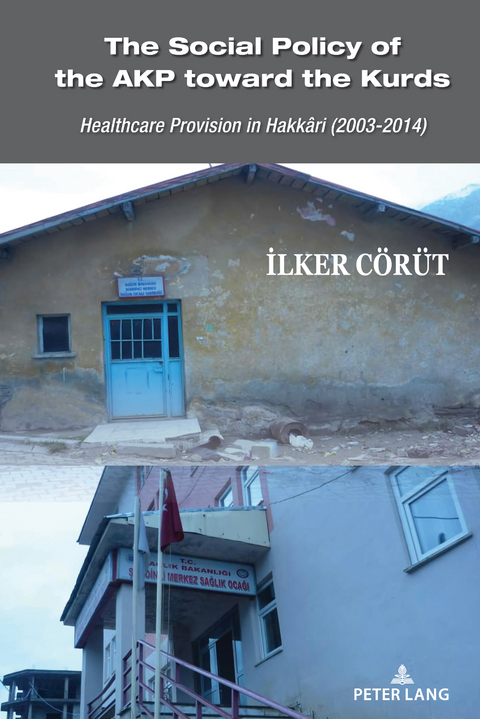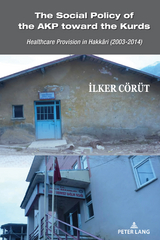The Social Policy of the AKP toward the Kurds
Peter Lang Publishing Inc (Verlag)
978-1-4331-9576-1 (ISBN)
This research focuses on the period 2003 to 2014, which was exceptional in the history of the Turkish Republic for its radical shift in the official stance adopted towards Kurds. The overall Kurdish policy of the AKP in 2003–14 was part of a wider agenda of refashioning the nation on an anti-Kemalist, anti-elitist, and essentially pro-Muslim basis. This reconstruction of the nation was built on the populist claim to be ending the varying levels of social and cultural exclusion that the religious masses, Kurds, informal employees, and poorly educated rural masses had been subject to as subaltern groups of the Republic. This policy did not work. The AKP failed to establish Turkish hegemony over Kurds and could not suppress the Kurdish national movement. This book looks for an explanation of the failure of the Kurdish policy of the AKP by considering the limits of its social policy in instituting a compliant, cooperative, submissive Kurdish subjectivity. To do this, it focuses on the persistence of patient dissatisfaction in Hakkâri, a small Kurdish province, during the period despite the very considerable improvements to healthcare provision achieved in these years. The empirical findings of this study show that the persistence of patient dissatisfaction in Hakkâri as a mass phenomenon was essentially a daily symptom of an ethnopolitical resistance to being interpellated by the AKP as citizens-in-the-making who would compare past and present, realize the progress, and thus appreciate the current quality of healthcare provision by tolerating any shortcomings as a minor price to pay for relative material comfort. In short, the limit of the AKP strategy was reached in an attempt to carry out a sort of politics of redistribution that tried to convince Hakkârians to be content with a situation that fell short of full respect to their identity and bodies.
İlker Cörüt (PhD, Central European University) is a Post-Doctoral Researcher at the Centre for Citizenship, Social Pluralism, and Religious Diversity at Potsdam University in Germany. Dr. Cörüt was awarded the ASEN/Nations and Nationalism Essay Prize and received the Remarkable Work Award from the Turkish Academy of Sciences for a Turkish translation of Provincializing Europe.
List of Figures – List of Tables – Preface – Acknowledgements – List of Abbreviations – Introduction – The Kurdish Question, Sovereign Violence, and Hakkâri – Indirect State Racism, Healthcare Provision, and Hakkâri – Turkish Nationalism, the Kurdish Question, and Hakkâri: Discourses and Practices, 2003–2014 – The Persistence of Patient Dissatisfaction as a Mass Phenomenon – The Compulsory Public Service of Doctors (CPSD) in Hakkâri – Discussion – Appendix – Bibliography – Index.
| Erscheinungsdatum | 07.11.2022 |
|---|---|
| Reihe/Serie | Culture, Society and Political Economy in Turkey ; 1 |
| Mitarbeit |
Herausgeber (Serie): Isabel David, Kumru Toktamis |
| Zusatzinfo | 49 Illustrations |
| Verlagsort | New York |
| Sprache | englisch |
| Maße | 150 x 225 mm |
| Gewicht | 568 g |
| Themenwelt | Medizin / Pharmazie ► Gesundheitswesen |
| Sozialwissenschaften ► Ethnologie | |
| Sozialwissenschaften ► Politik / Verwaltung ► Politische Systeme | |
| Sozialwissenschaften ► Politik / Verwaltung ► Politische Theorie | |
| Sozialwissenschaften ► Soziologie | |
| Schlagworte | assimilation • Citizenship • Ethno-political Challenge • Healthcare • İlker Cörüt • Kurdish Question • Kurds • Nation-Building • Patient Dissatisfaction • PKK • Social Policy • The social policy of the AKP towards the Kurds: Healthcare provision in Hakkâri (2003–2014) • Turkish Nationalism • Uneven Geographical Distribution of Doctors |
| ISBN-10 | 1-4331-9576-3 / 1433195763 |
| ISBN-13 | 978-1-4331-9576-1 / 9781433195761 |
| Zustand | Neuware |
| Haben Sie eine Frage zum Produkt? |
aus dem Bereich




